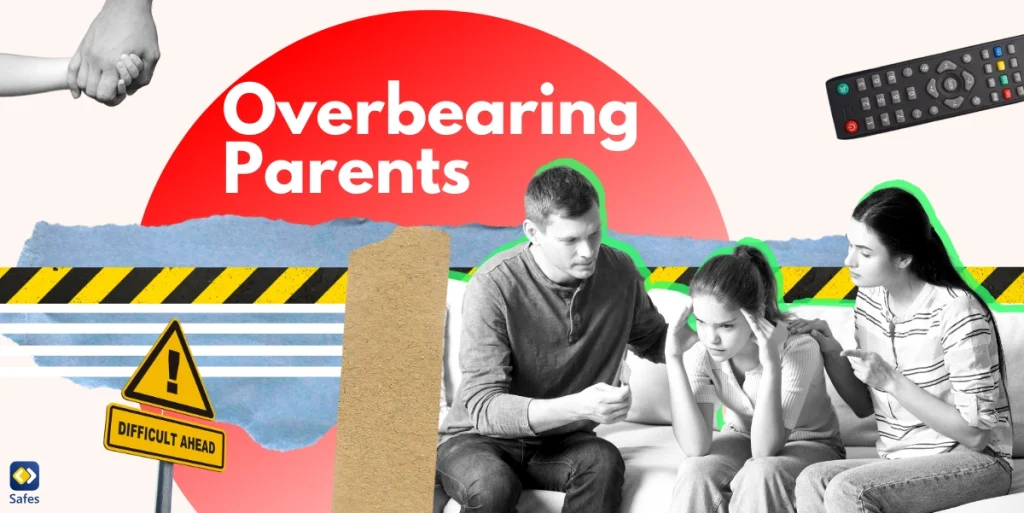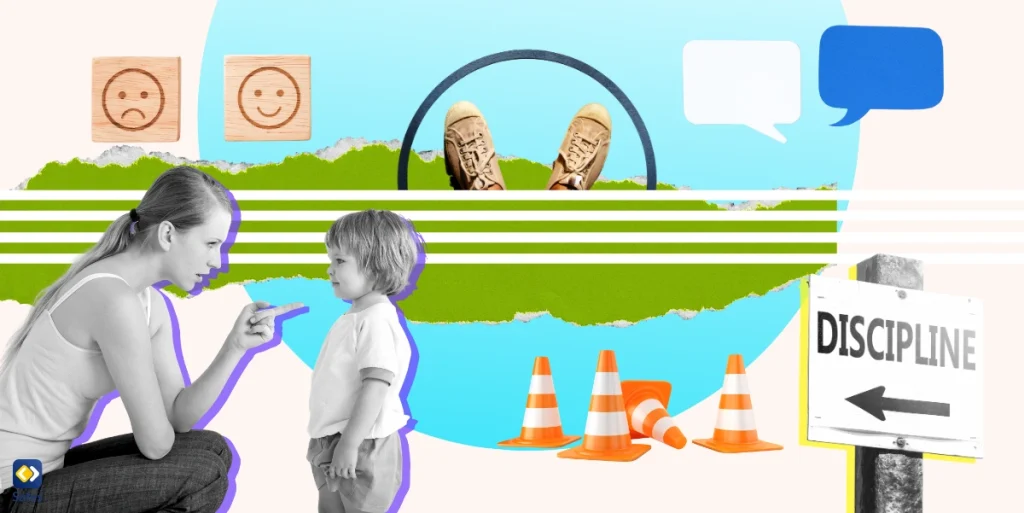As parents, we all want what’s best for our children. We try to provide love, support, and guidance as they grow up. However, sometimes our well-intentioned efforts to protect and nurture our children can veer into the territory of overbearing behavior. If you find yourself constantly worried about your child’s every move, micromanaging their decisions, or feeling the need to control every aspect of their lives, you may be wondering: am I an overbearing parent?
Download and Start Your Free Trial of the Safes Parental Control App
In this blog, we’ll explore the signs of overbearing parenting and its potential impact on your child’s growth and development. More importantly, we’ll discuss practical strategies and tips for those who think they’re overbearing and look for a way to stop it. But first, let’s see the characteristics of an overbearing mother and father.
What Does It Mean to Have Overbearing Parents?
Parents who are overbearing have certain characteristics that are likely to impact their children’s future. They tend to excessively control and be involved in their child’s life. These parents may also micromanage their child’s decisions, impose their own goals and expectations, and interfere in their child’s activities and relationships. Overbearing parents often prioritize their desires over their child’s autonomy and well-being, which can negatively impact the child’s emotional and social development.

What Are the Signs of a Controlling Parent?
Here are the signs of a controlling parent. If you think you have at least half of these examples of controlling behavior, then you are probably one. So, if you:
- Expect your child to be as well-behaved as a parent
- Interfere in every aspect of their life
- Constantly criticize their choices
- Set difficult standards for them
- Give your children conditional love
- Set unrealistic rules
- Show no empathy and respect
- Manipulate through gifts
You need to reconsider your parenting style and learn how to treat your children in a more positive and healthy way.
What Causes Parents to Be Emotionally Overbearing?
Several factors can cause parents to become emotionally overbearing. One of these causes is having excessive fears and anxieties about their child’s well-being, safety, or future success. This fear can drive them to excessively control and monitor their child’s life. Moreover, some parents have controlling personalities. They may exert excessive control over their child’s life as a way to maintain a sense of power or authority. As a result, a child raised in a controlling family will never gain the necessary skills to thrive.
Another important reason that leads to overbearing personality in parents, is their insecurities. Parents who feel insecure about their abilities as parents or who seek validation through their children’s achievements may become overbearing. They may try to control their child’s actions to compensate for their own insecurities. The cultural or societal norms that prioritize academic or professional success also play an important role. With these norms, parents may try to be overly involved in their child’s life and achievements and put them under academic pressure.
What Are the Effects of Over-Controlling Parents in Adulthood?
Based on a study by Muhammad Zubair in 2019, psychosocially controlling parenting has negative effects on children, in several ways:
- Harming children’s academic performance, that leads to increased test anxiety and a lack of confidence in achieving their goals.
- Influencing children’s mindset about intelligence by highlighting their failures.
- Lack of emotional support which causes unhealthy behaviors and relationships.
- Causing helplessness and frustration intolerance in children.
Overbearing parenting style can impact children negatively during their early years, and these effects can worsen as they transition into adulthood. This level of parental control may impede their ability to make independent decisions, reduce their self-confidence, and prevent them from creating healthy relationships. These kids are likely to struggle and look for a way how to deal with controlling parents throughout their lives. That is why it’s crucial for parents to have second thoughts about their behavior and learn the signs of bad parenting.

How to Stop Being an Overbearing Parent?
If you’re looking for a way to stop being a controlling parent, you’re halfway there! The moment you realize you need to work on your skills to guarantee your children’s well-being, you have taken a big step toward it! Here are some steps you can take to learn successful parenting.
It’s Time to Think of Your Behavior
Take some time to introspect on your parenting style. Review the moments when you may have exerted control over your child’s decisions or actions. Find any patterns of overbearing behavior and their potential impact on your child’s well-being and development. You can always consult a therapist to better understand these behaviors and find a clue.
Communicate Openly with Your Child
Initiate open and honest conversations with your child about your past mistakes and how to create a more supportive and respectful relationship. You can also encourage your child to share their thoughts, feelings, and concerns without fear of judgment. Make sure to listen actively to what they have to say and validate their perspectives.
Give Your Child Space for Autonomy
Establish clear boundaries between your role as a parent and your child’s autonomy. For that, you can identify areas where you tend to overstep and commit to giving your child more space to make their own decisions. Clearly communicate these boundaries to your child, emphasizing mutual respect and trust.
Encourage Their Independence
Actively support your child’s journey towards independence by providing them with opportunities to make choices and solve problems on their own. You can always offer guidance and assistance when needed but do not micromanage their actions. Also, you can celebrate their successes and encourage them to learn from their mistakes, fostering confidence and resilience along the way.
Empathy & Support Always Work
Empathy strengthens your connection with your child and fosters a more understanding and empathetic parenting approach. Therefore, you should cultivate empathy by putting yourself in your child’s shoes and considering their perspective. Validate their emotions and experiences, even if you may not always agree with them. All they need from you is to show genuine interest in understanding their thoughts and feelings and respond with compassion and support.
If it’s difficult for you to put these strategies into practice, don’t hesitate to reach out for support from a therapist, counselor, or parenting coach. Also, prioritize your own well-being and self-care to ensure you have the emotional resilience and patience to be a supportive parent. By taking care of yourself, you’ll be better equipped to provide the love, understanding, and guidance your child needs.
Final Word
In the journey of parenting, we all try to provide the best possible support and guidance for our children. However, along the way, it’s easy to fall into the trap of overbearing behavior, driven by our own fears, insecurities, and desires for our children’s success. Recognizing and addressing these behaviors is crucial for fostering a healthy and nurturing relationship with our children.
However, we also recognize that change doesn’t happen overnight. Also, sometimes, we need additional support to help us overcome the complexities of modern parenting. That’s where tools like Safes, our parental control app, come into play. Safes offers comprehensive features designed to help parents strike the right balance between supervision and independence.
If you have tried Windows parental controls or other devices, you will have a wonderful experience in digital parental control with Safes. From setting screen time limits and monitoring online activities to promoting healthy digital habits, Safes offers every option a parent needs to track their child’s online activities. This gives parents peace of mind that their children have safe online experiences.
Please don’t hesitate to download this app for Android and iOS to start safeguarding your children in the online world. Also, make sure you use our free trial to test how the app works in advance.
Your Child’s Online Safety Starts Here
Every parent today needs a solution to manage screen time and keep their child safe online.
Without the right tools, digital risks and excessive screen time can impact children's well-being. Safes helps parents set healthy boundaries, monitor activity, and protect kids from online dangers—all with an easy-to-use app.
Take control of your child’s digital world. Learn more about Safes or download the app to start your free trial today!




